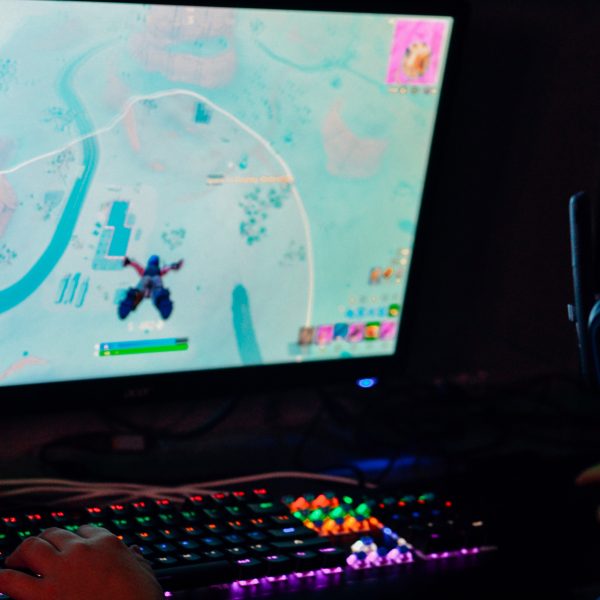Deakin research into screen time as concerns about usage grow

Nearly 90 per cent of parents shared that they would reduce their child’s screen time once they learnt about the risks excessive screen time can cause, including poor mental health and adverse impacts on their child’s future health, according to a new Deakin University study.
Dr Lauren Arundell from Deakin’s Institute for Physical Activity and Nutrition (IPAN) said parents “had a critical change in attitude” when they heard about specific health risks from too much leisure time spent on screens.
Adverse affects from too much time spent in front of a screen include poor muscle and bone health and increased risk factors for diabetes and cardiovascular disease, Dr Arundell said.
The fact that families were willing to reduce the exposure levels once they were more aware of the side effects of excessive use suggests that more education about the risks is needed, she added.
The research, recently published in the International Journal of Environmental Research and Public Health, included 540 parents of children aged from eight to 16 years of age living in Australia. It examined 15 home-based screen time behaviours that children undertook in their leisure time, separate from homework.
The most prevalent behaviours for children were watching TV, videos or DVDs (68 minutes per day); using a tablet or smart phone for leisure (54 minutes per day); and, using a computer or laptop for leisure (43 minutes per day).
When broken down further into age groups, the study found that 78 per cent of older children (aged 12 to 16) and 56 per cent of younger children (aged eight to 11) failed to meet the national screen-based sedentary behaviour guidelines of limiting leisure screen time to less than two hours per day.
“The older children spent just over four hours on screens during leisure time per day, which was almost double that of the younger children (two hours and 15 minutes screen time per day),” Dr Arundell said.
Weekend use was of particular concern, Dr Arundell noted, with “all children spending an additional two hours per day in front of their screens – up to five hours and 19 minutes per day”.
The parental screen behaviours also showed a high level of screen use in leisure time.
Adults spent the greatest amount of time using a tablet or smartphone for leisure (81 minutes per day); followed by watching TV, videos or DVDs (63 minutes per day); and using a computer or laptop for work (47 minutes per day). Weekday versus weekend use also followed the same patterns, with four hours and 11 minutes on weekdays, compared to five hours and 22 minutes on weekends.
In addition to finding out what behaviours the children and parents were performing, the study also focused on identifying what screen time behaviours parents believed they could reduce.
“Our findings showed that the most feasible behaviours that parents believed they and their children could reduce were in fact those where they were already spending the highest amount of leisure time – on tablets, smartphones and game consoles, followed by TV, videos, DVDs and computers,” Dr Arundell said.
“We believe that there is considerable scope to reduce screen time behaviour in the home and hard hitting messages that resonate with parents could help to drive that change.”
The importance of positive adult role modeling was highlighted, with Dr Arundell saying parents were important role models in terms of screen-based behaviours, so they could also be positive role models to change these behaviours for the better.
“Given parents play a pivotal role, we now want to look at ways to reduce their screen time use as well. We can target both child and parent behaviours and really make sure overall that the household is healthier and happier,” she said.
Some practical strategies to cut down on screen time include:
-
Parents to put their phones aside when they get home from work and spend time together as a family
-
Let the phone ring out if it isn’t an emergency, so the child learns the phone isn’t ruling family time together
-
Have a policy of no screens in bedrooms, with parents leading by example and charging phones in a central location
-
Screen-free eating – screens are away and the focus is on important face-to-face interaction
-
Put a family media plan into place, so there is trust and understanding and children know upfront how long they are allowed to use their devices
-
Give children clear five-minute warnings to help manage any conflict that arises, until it becomes the norm
-
Plan a non-screen based activity to do as a family, this could be visit to a local playground, watching a local football match or playing a game together.
As a result of the findings, Dr Arundell and a team at IPAN have created an online evidence-based program to help parents manage their child’s screen time at home. The program contains family friendly strategies, tips and tricks to create a healthier and happier home.
They are looking to recruit families with a child aged between eight and 12 years of age who live within 20 km of the Deakin University campus in Burwood to trial the program. To find out more about the study or register, email [email protected]
Popular

Policy
Practice
Provider
Quality
Research
Workforce
Beyond the headlines: celebrating educators and the power of positive relationships in early learning
2025-07-07 10:00:24
by Fiona Alston

Workforce
Policy
Quality
Practice
Provider
Research
ECEC must change now, our children can’t wait for another inquiry
2025-07-02 07:47:14
by Fiona Alston

Workforce
Quality
Practice
Provider
Research
Beyond the finish line: Championing child protection one marathon at a time
2025-07-08 09:15:32
by Fiona Alston













